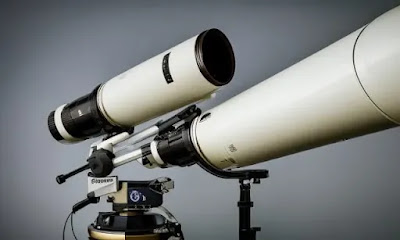 |
| Pushing the Boundaries: The Debate Over the Value of Space Exploration |
Introduction
Space exploration has been a topic of debate for decades, with arguments on both sides of the issue. Some people believe that it is an important initiative that helps us better understand our universe and develop new technologies, while others argue that it is a waste of resources and a futile exercise that doesn’t bring tangible benefits to humanity.
The Benefits of Space Exploration
 |
| To boldly go where no one has gone before: the eternal question of whether space exploration is worth the effort |
Space exploration has already brought significant benefits to humanity, and it continues to do so today. For example, space agencies like NASA and ESA have developed technologies that have led to advancements in medicine, communication, and transportation. The development of GPS technology, which is used in everyday life, was originally intended for the space program. Space exploration has also led to a better understanding of our planet and its climate, which has important implications for our future.
In addition, space exploration allows us to study the universe and learn more about its origins and evolution. We can observe celestial objects and phenomena that we would not be able to see from Earth, such as black holes, neutron stars, and distant galaxies. This can lead to groundbreaking discoveries that deepen our understanding of the universe and our place in it.
Another important benefit of space exploration is the development of new technologies. For example, the Apollo program led to the development of new materials and technologies that have since been used in a variety of fields, including medicine, transportation, and energy. Space exploration also requires the development of highly advanced and sophisticated technologies, such as rockets, satellites, and robotics, which have applications beyond space exploration.
Space exploration can also inspire future generations of scientists and engineers, which could lead to even more advancements in the future. By encouraging young people to pursue careers in science and engineering, space exploration can help ensure that we have the talent and expertise needed to tackle the challenges we face as a species.
The Risks and Costs of Space Exploration
 |
| Space exploration: A high-risk, high-reward endeavor that comes at a cost. |
While the benefits of space exploration are significant, it’s important to acknowledge that it does come with risks and costs. For example, accidents can occur during space missions, as we have seen with the Challenger and Columbia disasters. These accidents can result in the loss of life and resources, and they can also set back space exploration efforts by years or even decades.
Space exploration is also expensive. The cost of launching a rocket into space is extremely high, and the development of new space technologies can require significant investment. The cost of space exploration has led some people to argue that the money and time spent on it could be better used to address more pressing issues on Earth, such as poverty, hunger, and climate change.
The Case for Space Exploration
 |
| Beyond the Horizon: The Ongoing Debate on the Value of Space Exploration |
Despite the risks and costs associated with space exploration, there are several compelling reasons to continue to invest in it. One of the most important is the potential for groundbreaking scientific discoveries. As we continue to explore the universe, we may make discoveries that change our understanding of the cosmos and our place in it. These discoveries could have significant implications for our future and for the future of humanity as a whole.
In addition, space exploration has already led to significant advancements in many fields, and it has the potential to lead to even more. For example, the development of new materials and technologies for space exploration can have applications in fields like medicine, transportation, and energy. By investing in space exploration, we can drive innovation and development that can benefit society in a variety of ways.
Another important reason to continue to invest in space exploration is the inspirational and motivational value of space exploration. Space exploration captures the imagination of people all over the world, and it has the power to inspire future generations of scientists and engineers. By encouraging young people to pursue careers in science and engineering, we can ensure that the future generations can continue their endeavours in the field of astronomy.
The Case against Space Exploration
On the other hand, opponents of space exploration argue that it is a waste of resources and that the money and time spent on it could be better used to address more pressing issues on Earth, such as poverty, hunger, and climate change. They also argue that the risks associated with space exploration, such as accidents and astronaut health problems, are not worth the potential benefits.
The critics of space exploration argue that the resources spent on space missions could be better used for solving problems on Earth, such as poverty, hunger, and climate change. They argue that the money spent on space exploration could be put towards social programs and scientific research on Earth, which would have more immediate and tangible benefits for society. Additionally, space missions are risky and expensive, and failures can result in loss of life and resources.
Conclusion
In conclusion, space exploration is both an important initiative and a complex issue. While it may not directly solve some of the pressing issues facing humanity, it has brought and will continue to bring significant benefits and advancements in many fields. The key is to balance the resources and risks associated with space exploration with the potential benefits, and to continue to invest in it while also addressing the pressing issues facing our planet. Ultimately, the exploration of space is an expression of humanity’s desire to understand and explore the unknown, and that is a worthy endeavor in and of itself.



